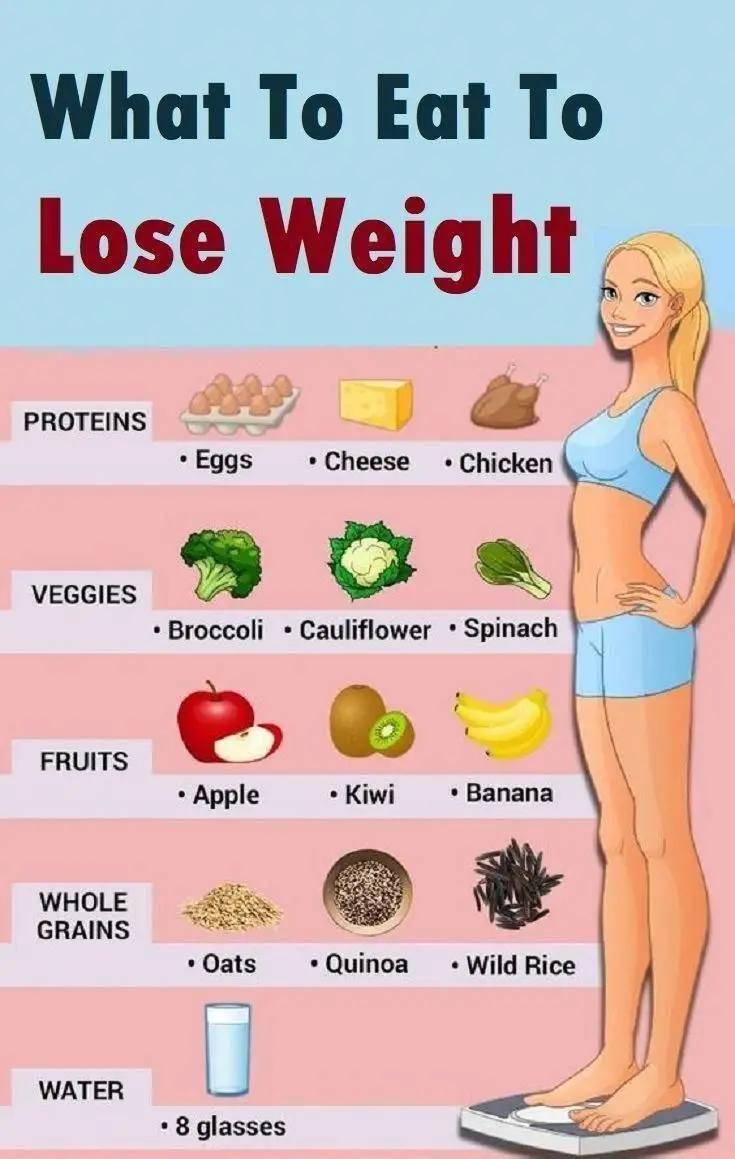Is It Possible to Lose Weight in a Week?

Is it possible to lose weight in a week? This question often dances around the minds of those seeking a quick transformation in their appearance and health. The allure of rapid weight loss can be tempting, especially in a culture that values instant results. However, while losing weight within the span of just one week is certainly possible through various strategies, it is essential to understand the physiological realities behind such methods. Rapid weight loss might not always equate to effective or sustainable weight management. In this article, we will explore the intricate mechanics of weight loss, the different strategies employed, the psychological implications, and the broader health impacts associated with short-term weight loss goals.
Understanding the Mechanics of Weight Loss
To fully appreciate whether it is feasible to shed pounds in a week, one must delve into the body’s intricate workings during weight loss.
The human body primarily loses weight through three significant processes: fat loss, muscle loss, and water weight reduction. Each of these components plays a vital role in the numbers that appear on our scales, but they contribute differently to overall health and well-being.
Is It Possible to Lose Weight in a Week? – The Role of Water Weight

Water weight is often the first casualty in any quick weight-loss journey. This phenomenon mainly occurs due to changes in dietary habits, particularly when someone significantly reduces carbohydrate intake. Carbs are stored in the body as glycogen, which binds with water in the muscles. When you cut back on carbs, your body starts using up its glycogen stores, resulting in a swift release of the water attached to it.
This initial drop in weight can be misleading, as most of what is lost is not fat but simply excess fluid. Such changes can also lead to dehydration if not managed correctly, highlighting the importance of maintaining hydration during any weight loss regimen.
Fat vs. Muscle Loss

While some individuals may experience a rapid decrease in scale weight, it does not necessarily indicate a loss of fat. Losing muscle mass can also contribute to a lower number on the scale. Muscle loss occurs when there is a drastic calorie deficit, and the body begins breaking down muscle tissue to meet energy needs. This outcome is detrimental in the long run since muscle is metabolically active and contributes to a higher resting metabolic rate.
When embarking on a weight-loss journey, focusing on preserving lean muscle mass should be a priority. Instead of solely aiming for a lower number on the scale, an individual should strive for a healthy balance between fat loss and muscle preservation.
Metabolic Adaptation

Another aspect to consider is metabolic adaptation. When the body experiences a significant reduction in caloric intake, it can adjust by slowing down the metabolism to conserve energy. This adaptation makes sustained weight loss increasingly challenging over time. While initial losses might be encouraging, many people plateau after the first week, leading to frustration and potential abandonment of their weight-loss efforts.
Understanding these underlying mechanisms helps frame realistic expectations around weight loss and fosters healthier habits that transcend temporary fixes.
Different Strategies for Quick Weight Loss

In a world saturated with weight-loss programs, each promising miraculous results in just a week, it’s vital to dissect the various strategies people employ. While some methods may yield immediate results, others could pose risks to physical and mental health.
Intermittent Fasting

Intermittent fasting has gained considerable traction as a popular method for weight loss. This strategy involves cycling between periods of eating and fasting, thereby creating a caloric deficit.
One of the primary reasons this method can lead to rapid weight loss in a week is its ability to restrict the eating window, which naturally limits calorie intake. Many find success with intermittent fasting because it simplifies meal planning and eliminates the need for constant calorie counting. However, it’s worth noting that while intermittent fasting can produce rapid results initially, sustainability hinges on finding a suitable balance that works for the individual beyond the initial week.
Additionally, fasting can have implications for mental health. Some individuals may experience increased irritability or anxiety when adjusting to new eating patterns, emphasizing the need for psychological preparedness when diving into fasting regimes.
Rigorous Workouts
Another avenue people frequently pursue is vigorous exercise sessions. Individuals may engage in high-intensity workouts, hoping to burn enough calories to achieve noticeable weight loss within a short timeframe.
While rigorous workouts can induce quick results, they also come with the risk of burnout or injury. A sudden spike in physical activity levels can overwhelm the body if proper precautions are not taken. It is crucial to listen to one’s body and allow adequate recovery periods, as neglecting this can lead to setbacks rather than advancements in one’s fitness journey.
Moreover, the motivation derived from seeing visible results can be both empowering and deceptive. The initial enthusiasm may lead someone to push themselves beyond their limits, ultimately causing them to fall out of routine when faced with fatigue or soreness.
Extreme Calorie Cutting
Extreme calorie restriction is another approach employed by those looking for rapid weight loss. By drastically reducing daily caloric intake, individuals may see a sharp decline in weight during the first week.
However, this method is fraught with potential consequences. Severe caloric deficits can lead to nutritional deficiencies, fatigue, and even impact one’s mental health. The mind and body require essential nutrients to function optimally; depriving oneself of these can create a vicious cycle of emotional eating and binge behavior once normal eating resumes.
Similarly, the psychological toll of extreme dieting can be profound. Individuals may become fixated on food, leading to unhealthy relationships with eating that often spiral into yo-yo dieting patterns.
The Psychological Aspects of Rapid Weight Loss

As much as physical transformations are integral to the weight-loss journey, the psychological component cannot be ignored. The emotional interplay surrounding weight loss can make or break an individual’s quest for better health.
Motivation and Accomplishment
When someone embarks on a weight-loss challenge, the excitement of witnessing nearly instant results can foster a sense of accomplishment. This feeling can be highly motivating, pushing individuals to continue striving toward their goals.
However, this burst of motivation can quickly morph into unrealistic expectations. Many individuals expect to maintain the same pace of weight loss, and when reality sets in, disappointment can ensue. It is essential to recognize that sustainable weight loss is often gradual, requiring patience and resilience to navigate the inevitable plateaus that accompany a longer journey.
Emotional Instability
The rollercoaster ride of rapid weight loss can lead to emotional instability. The thrill of initial success can give way to feelings of disheartenment when progress stalls or reverses. This emotional turmoil can foster a negative self-image, further complicating the relationship with food and body perception.
Instead of fostering a healthy mindset surrounding weight, individuals should focus on setting gradual, realistic goals centered on overall well-being rather than mere numbers on a scale. Embracing this holistic perspective can help mitigate emotional fluctuations and promote lasting confidence.
Establishing Healthy Mindsets
Building a positive mental framework around weight loss is crucial for long-term success. Practicing mindfulness and self-compassion can greatly enhance the weight-loss journey, allowing individuals to acknowledge their struggles without judgment. When setbacks occur, reframing challenges as opportunities for growth rather than failures can transform perceptions and foster resilience.
Ultimately, incorporating practices like journaling, meditation, or supportive group interactions can provide valuable tools to navigate the emotional complexities of weight loss. By prioritizing mental well-being alongside physical goals, individuals can cultivate a balanced and fulfilling approach to their health journey.
Implications for Health and Fitness

The conversation surrounding weight loss extends far beyond individual experiences, weaving into the collective dialogue about health and wellness. As society continues to gravitate toward quicker solutions amid hectic lifestyles, understanding the importance of sustainable practices becomes paramount.
Moving Beyond Quick Fixes
A growing awareness of the limitations of rapid weight loss invites a paradigm shift in how we perceive fitness and health. The notion that true wellness stems from fleeting bursts of activity is becoming outdated. Instead, embracing a balanced approach rooted in sustainable habits fosters overall health and well-being.
Engaging in consistent physical activity, nourishing the body with wholesome foods, and practicing self-care contributes to a more fruitful and enjoyable experience. Gradual, consistent change often yields better long-term results than the allure of quick successes.
The Journey of Learning and Adaptability
Individual campaigns promoting health encourage embracing a journey filled with learning, adaptability, and patience. Navigating the complexities of weight and self-care offers opportunities for personal growth that extend beyond mere aesthetics.
True fitness encompasses a multifaceted approach that prioritizes mental and emotional well-being. By recognizing personal triggers and cultivating resilience, individuals can redefine their relationships with food, exercise, and themselves.
Building Resilience Through Challenges
Life is replete with challenges, and weight management is no exception. Embracing moments of difficulty as essential parts of the journey can lead to profound transformations in perspective. This renewed outlook can empower individuals to approach their health endeavors with optimism and determination.
Embarking on a weight-loss journey doesn’t merely involve physical changes; it shapes a person’s entire worldview, fostering strength, adaptability, and resilience in facing life’s challenges.
Conclusion

In conclusion, while losing weight in a week is indeed possible through various rapid weight-loss strategies, it is imperative to take a nuanced view of the implications involved. The science of weight loss is complex, intertwining physical, psychological, and emotional aspects that necessitate thoughtful consideration. Instead of succumbing to the allure of quick fixes, individuals should prioritize sustainable practices that promote overall health and well-being.
Ultimately, the journey toward becoming healthier is as much about personal growth and resilience as it is about changing numbers on a scale. Striking a balance between realistic expectations and proactive measures can foster a positive relationship with food, exercise, and self-care—leading to a more fulfilling and enjoyable journey toward health.





